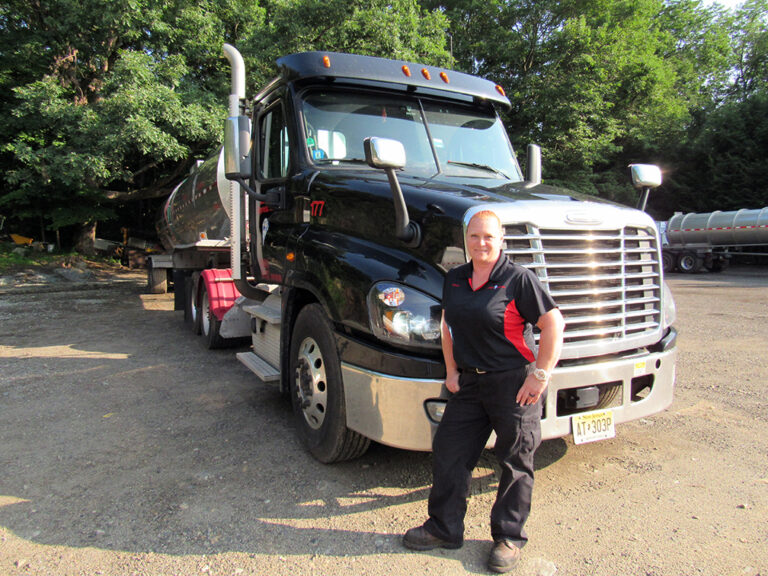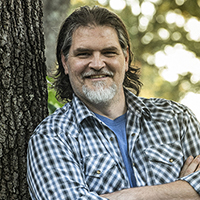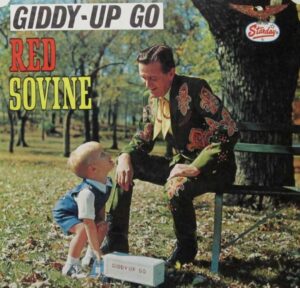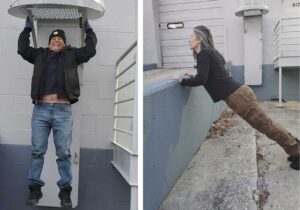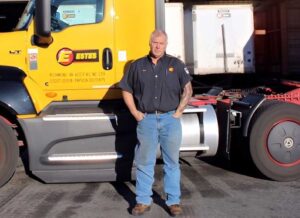Whoever said “it’s a man’s world” never met Melissa Bencivengo-Ahorrio. The brash New Jersey native has made a career out of one supposedly “male” job after another, always beating the boys at their own game.
For the past almost-four years, that’s exactly what she’s done behind the wheel, hauling a tanker for Carbon Express. It’s the culmination of a dream formed with her earliest memories with her uncle, Billy “Rebel” Conniers.
“My passion started when I was 5, 6 years old,” Bencivengo-Ahorrio said. “Uncle Rebel lived in West Virginia, and we lived up here in Jersey. He would blow through town, and he would stop and visit my mom, his sister. He drove a huge Kenworth sleeper. I will never forget it; it was white with blue doors and a pinstripe down the hood.
“He would let me sit in it, and every once in a while, he’d be like, ‘Ok, you can hit the horn’. And I would have to stand on the seat to reach the air horn. And I thought it was just the coolest thing,” she recalled. “Growing up, I just always had a passion for big trucks, big rigs.”
It would be several years before she was able to get into the cab for real, but it wasn’t for lack of grit. Working to support her family, Bencivengo-Ahorrio held a string of tough jobs and made believers out of her co-workers — who were mostly men — wherever she went.
“Believe it or not, I worked as a carpenter, building decks and houses for a contractor,” she said.
“(Then) I went to work for a tree service, and there I started driving single-axle dumps, and then I started driving the split-rears, and then I started driving split-rear crane,” she said. I thought that was cool, I learned how to operate the crane.”
But Bencivengo-Ahorrio had more barriers to break.
“I became a mason for a year and a half. Years later, I became a driller and was driving drill rigs,” she explained.
And when she finally earned her commercial driver’s license (CDL) and got behind the wheel of a big rig, it wasn’t just any gig. She cut her teeth as a driver while working for a hazmat outfit.
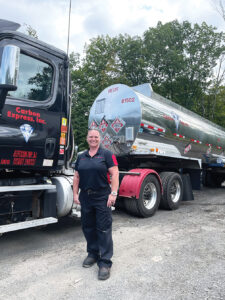
Today she works for Carbon Express, driving tankers filled with thousands of gallons of chemicals. She quickly learned that tanker drivers are a species unto themselves. This type of trucking requires knack and nerve that many drivers just don’t have.
“I gotta say, tanker driving isn’t for everybody,” she said. “It’s a ‘live’ load because of the surge. Not everybody can get used to that, because of the feel of it. We’ve had guys quit because they just didn’t like that feeling of getting hit with the surge. They didn’t like the instability and the sporadic nature of it.
“For me, it just comes naturally,” she continued. “Driving a tanker is like … basically, it’s like dancing with a different dance partner every day because every tanker is different. You have compartment trailers that have bulkheads. And then you’ve got the baffle trailers that slow down your surge.
“And then you’ve got the straight bullet tankers where it’s pretty much like a tango partner because it’s abrupt when you get hit with a surge. It feels like you’re just being pushed through; like being hit with a hundred bulls in the back of your truck,” she said.
Even the volatile nature of the load doesn’t seem to bother the 45-year-old mother of six. When asked how she got used to hauling flammable, corrosive and downright nasty stuff Bencivengo-Ahorrio was unnervingly nonchalant — but it’s clear she knows her stuff.
“We haul all kinds of chemicals. We haul everything from formaldehyde, high-tech additives for fuel. We haul petroleum oils,” she said. “We haul methanol; methanol is flammable. The high-tech additives are all flammable. And you got the formaldehyde that is corrosive. And you have the antifreeze that is a miscellaneous, but it’s poisonous.
“I was really lucky. I worked for an environmental hazmat response company before Carbon Express. We were responding to environmentally hazardous spills. So, I got trained in the two years that I worked there on how to respond to chemicals, how chemicals reacted to things, how you react to the chemical, reaction to water, environment, being moved,” she shared.
“The minute I read the name of a chemical I’m hauling, I immediately look it up so that if anything is to happen, God forbid — like I flip the tanker or it ruptures or there’s a spill, I already know how to recover it,” she explained.
Despite being in the cab for a relatively short time, Bencivengo-Ahorrio has touched 36 of the lower 48 states. She and her Freightliner Cascadia, which has a Detroit engine, run routes that stretch all the way to the West Coast.
She said she’s always amused at the reaction she gets as a female tanker driver, especially from other women.
“Mostly, they ignore me,” she said. “When I’m at a truck stop every once in a while, I’ll get a thumbs up, or they’ll just give me a nod. They do not interact with me most of the time.”
Not all of them are stand-offish, however.
“There is a woman down here in Jersey; she’s another tanker driver,” Bencivengo-Ahorrio explained. “I just met her last week when she was fixing a light on the rear end of the trailer. She was doing it herself. There were men all over the place and she’s doing it herself, just like I did, on the side of the road.”
Bencivengo-Ahorrio decided to help a sister out with a bit of encouragement and praise.
“So, I parked my truck real fast, I jumped out and I walked over. I said, ‘You get it, sister.’ And I put my fist out and we bumped fists. And I was like ‘You keep it rubber side down and be safe out there.’ She was like, ‘You too, sister,’” she said. “That was the first time where I had another woman actually interact face-to-face like that, outside of being in Women in Trucking (WIT).”
WIT, she said, provides her with a useful network of other women in the industry as well as informational seminars and resources through which she has expanded her knowledge. In return, WIT has recognized Bencivengo-Ahorrio’s expertise, naming her Member of the Month for September 2021.
“I’ve met all of these women, women driving heavy machinery, women driving these gigantic flatbeds that have a 110,000-pound heavy load on them. It was incredible to meet these women that drive,” she said. “It’s interesting when we can sit down and talk to each other, you know, and not just trucker-to-trucker. There are dispatchers, there’s logistics, there’s trucking executives. There are so many different parts of the trucking industry in the organization.
“Every once in a while, we’ll hit each other up on Facebook Messenger and we’ll be like, ‘Hey, where you at? I haven’t seen you in a while. What truck stop you going through?’ We just talk about how the work is going. ‘Have you been consistent? What’s going on in your area? How’s the weather?’” she said.
Asked what she’d like to do long-term, Bencivengo-Ahorrio said she’d ultimately like to train other drivers. But for now, she’s completely focused on becoming the best driver — male or female — on the road. And thanks to her Women in Trucking tribe, that’s exactly where she’s headed.
“Two years ago, I started with Women in Trucking, and I’ve gotten so much better with everything,” she said. “You can go on the Women in Trucking website, and they have tutorials. They have women actually showing pre-trips, showing safety tips, all kinds of things for women being on the road. It’s really eye-opening for someone like me.”
Dwain Hebda is a freelance journalist, author, editor and storyteller in Little Rock, Arkansas. In addition to The Trucker, his work appears in more than 35 publications across multiple states each year. Hebda’s writing has been awarded by the Society of Professional Journalists and a Finalist in Best Of Arkansas rankings by AY Magazine. He is president of Ya!Mule Wordsmiths, which provides editorial services to publications and companies.




